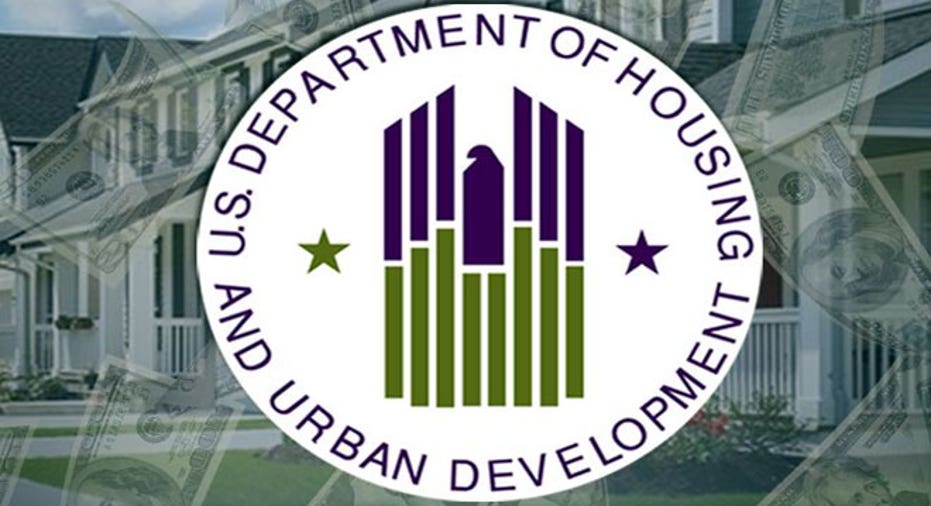Federal Housing Administration to Tap $1.7B in Taxpayer Funds

The U.S. Federal Housing Administration said on Friday it will draw $1.7 billion in cash from the U.S. Treasury to help cover losses from troubled loans, marking the first time in its 79-year history that it has needed aid.
The agency, which offers mortgage lenders guarantees against homeowner defaults, told Congress it does not have enough cash to cover projected losses on the loans it backs. It said it needs the subsidy to shore up its insurance fund to maintain a required capital cushion.
White House officials projected in April that the FHA would face a shortfall of $943 million in the fiscal year that ends on Monday, but rising mortgage rates cut its loan volume and curbed a hoped-for increase in revenues from higher loan premiums.
FHA Commissioner Carol Galante said her agency was required to draw money based on loan performance assumptions that were locked down in December, but she said those assumptions did not capture improvements that would have likely canceled out a need for aid.
"In the next few months, we expect updated data and economic forecasts to reflect what we already know to be true - the health of the (FHA insurance) fund has improved significantly," she told lawmakers in a letter.
The cash infusion marks what could be considered a book end to the 2007-2009 financial crisis, which started with the U.S. subprime mortgage crisis.
Most of the damage to the FHA was caused by loans that were made during those years as the real estate market cratered and it expanded its book of business to support the mortgage market. Officials said those loans are projected to cost the agency $70 billion.
Loans originated in the past few years have performed much better. The number of loans seriously delinquent at the end of July was 15 percent below the level of a year earlier and at the lowest point in almost three years.
In addition, the amount of money the FHA is recovering on foreclosed properties is up sharply. "It is estimated that the improvement in recovery rates alone is worth more than $5 billion," Galante said.
POLITICAL TENSIONS
While the FHA had been expected to draw from the Treasury, the size of the cash infusion, which Republicans have dubbed a bailout, will heighten the political tension over the government's pervasive role in the mortgage market.
Taxpayers have already propped up mortgage finance giants Fannie Mae and Freddie Mac to the tune of $187.5 billion, although those government-controlled companies are now profitable and will have returned $146 billion in dividends to the Treasury by the end of the month.
Including Fannie Mae and Freddie Mac, federal housing agencies support about nine in 10 new U.S. mortgages.
Idaho Republican Senator Mike Crapo said the announcement reinforced the need for Congress to revamp the housing finance system to reduce the government's footprint.
"Taxpayer liability could come to fruition if we do not act on serious reform now," he said.
$30 BILLION ON HAND
The FHA said it has more than $30 billion in cash and investments on hand to pay potential claims, but that it does not have enough to meet a legally required 2 percent capital ratio, which is a measure of its ability to withstand losses.
The FHA has not met its capital ratio since 2009, but the ratio only sank below zero this budget year.
"Although this one-time transfer of funds from the Treasury is legally necessary, it's important to note that FHA is far from bankrupt," said Representative Maxine Waters, a California Democratic who supports programs that help low-income borrowers.
Since the cash draw from Treasury will not be disbursed by the FHA, it will not impact how quickly the government runs out of money to pay its bills under the nation's $16.7 trillion debt ceiling. In addition, the Treasury has the authority to take the $1.7 billion back once the FHA rebuilds its reserves.
After an independent audit in November found that its insurance fund could face losses as high as $16.3 billion, the FHA raised the amount it charges borrowers to insure mortgages against default and tightened underwriting. The changes, coupled with rising home prices, helped shrink the projected gap.
The FHA has said its cash needs were mainly driven by losses from reverse mortgages, which allow homeowners age 62 or older to withdraw equity and repay it only when their homes are sold. The agency, which is expected to spend $2.8 billion this year insuring reverse mortgages, backs 90 percent of such loans.
It has already announced new guidelines for potential reverse mortgage borrowers, including lower limits on the amount seniors can withdraw, higher mortgage insurance fees and tougher vetting of applicants. Those changes, however, do not go into effect until Tuesday.
Republicans have argued the FHA needs to take more aggressive action to protect taxpayers, including reducing maximum loan limits and raising minimum down payments.
The Obama administration contends some of those steps would undermine the agency's mission to provide credit to first-time home buyers and needy communities.
The FHA has played a critical role supporting the housing market by insuring mortgages for borrowers who make down payments of as little as 3.5 percent. The FHA insures about $1.1 trillion in mortgages and now backs about one third of all new loans used to purchase homes, up from about 5 percent in 2006.



















